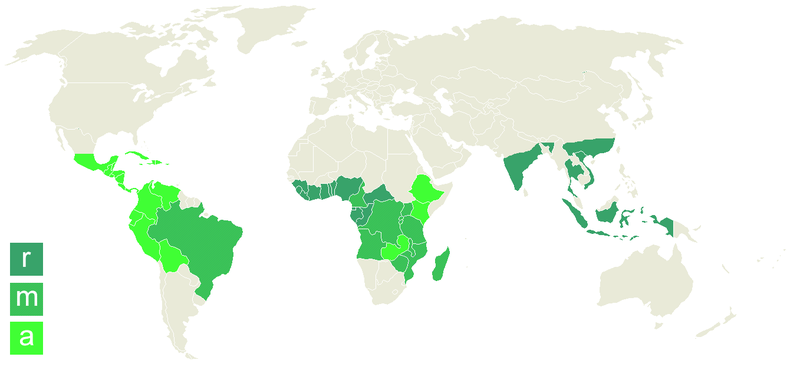500 billion cups of coffee are consumed globally every year. It’s big business. And you thought I’d chosen such a niche topic to keep writing about.
The coffee industry is facing problems though. The tough economic climate means people are cutting back on expensive coffee, and even drinking instant. Partly thanks to Starbucks’ new instant product. Via. Which gives me one of those involuntary shudders.
This discussion – particularly the impact of the economic climate on coffee purchasing – was the topic of a recent post from Hungry Magazine.
“VIA™ also focused me on what’s not happening at the local level. If you recall, I mentioned I just drank French pressed whole bean grocery store bought Starbucks. Up until a few months ago I was an exclusive Intelligentsia and Metropolis coffee drinker. But with the economy tugging at me and 12 oz of locally roasted beans costing $11.99 or so, I started experimenting with the $8.99 and $6.99 options available at the grocery store. I was convinced I’d probably end up where I started from, but I needed to see what was out there.”
The post drew some interesting comments from the CEO and bean buyer from Intelligentsia Coffee – arguably the pinnacle of the “specialty coffee” movement.
One of the economic problems facing the coffee industry is best expressed by these two maps. The countries producing coffee are very different to the countries buying it. Picture one represents coffee producers, picture two coffee drinkers. 

Here are the pick of the comments from Intelligentsia buyer Geoff Watts.
“Your average coffee farmer today is making less money per pound of sold coffee than his grandparents did, in real (unadjusted) dollars, despite drastically higher living costs and production costs.”
Meanwhile, the mainstream first-world consumer has held stubbornly to the idea that coffee is a cheap luxury, that the $1.00 bottomless mug is somehow a right or a deserved privilege.
It is this very attitude that will continue to ensure that the modern smallholder coffee farmer has little hope of escaping a life of extreme poverty.
Cheap coffee (and by “cheap” I mean low cost, which typically equates to low quality) is one of the many forces shackling the developing world and suppressing opportunity for advancement for a huge chunk of the planet’s population who depend on coffee to make a living.
I would argue that even downright crappy coffee ought to carry a higher price tag than it currently does, especially considering the higher production costs that most farmers face today.”
Comments
I don’t care how bad the economy is, I still won’t drink instant.